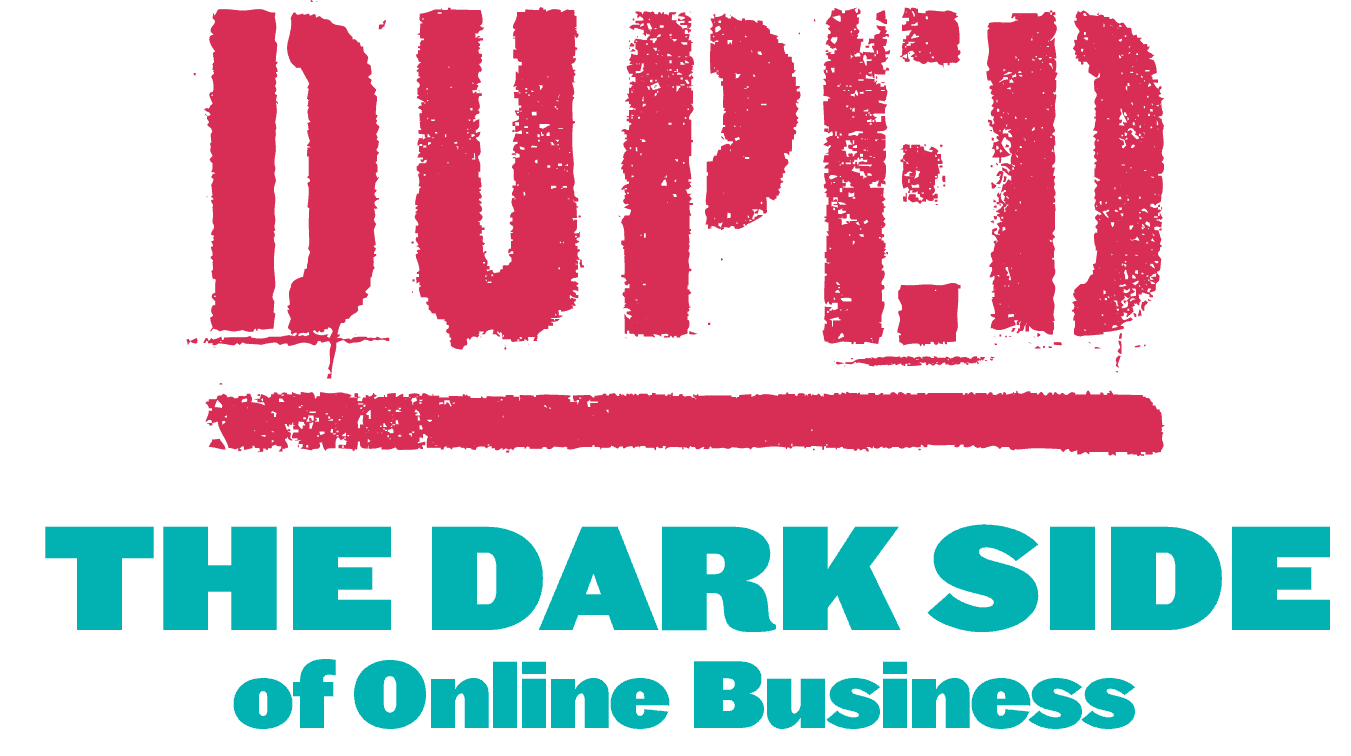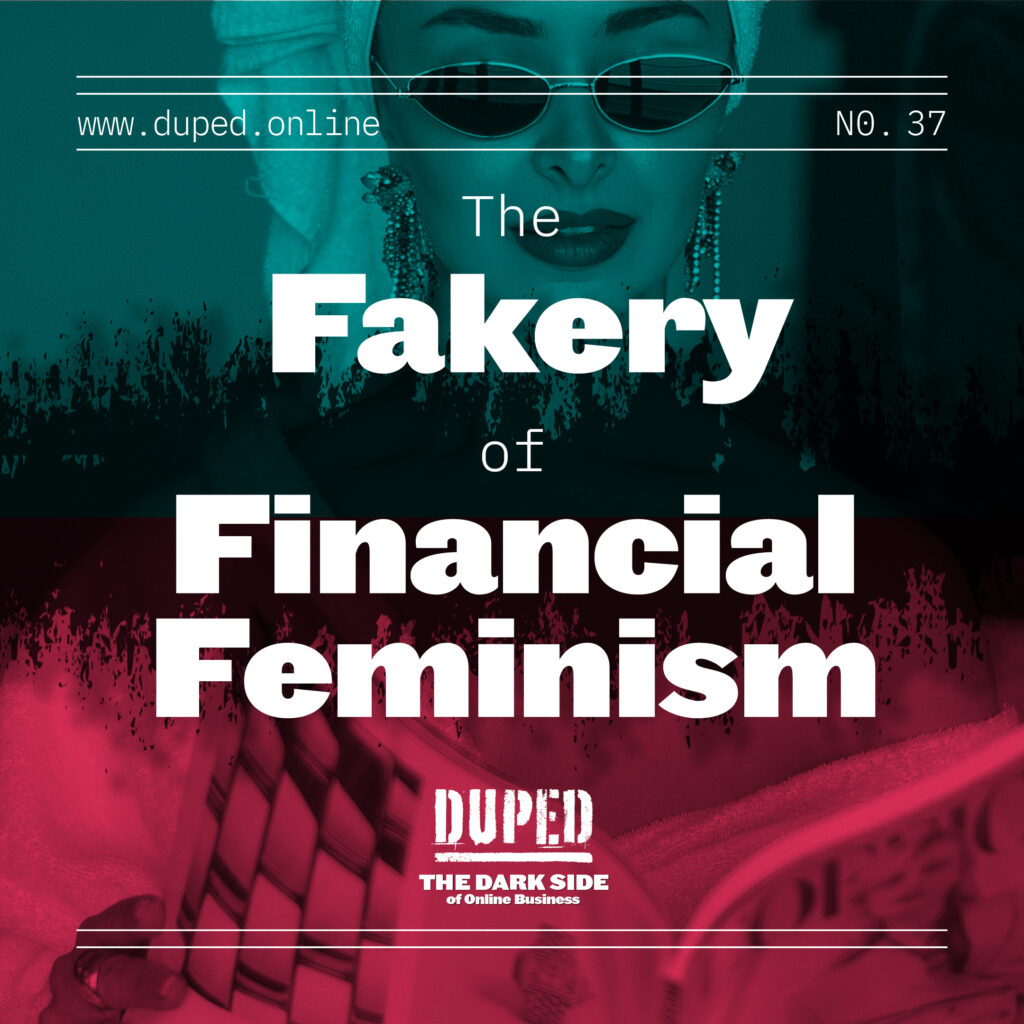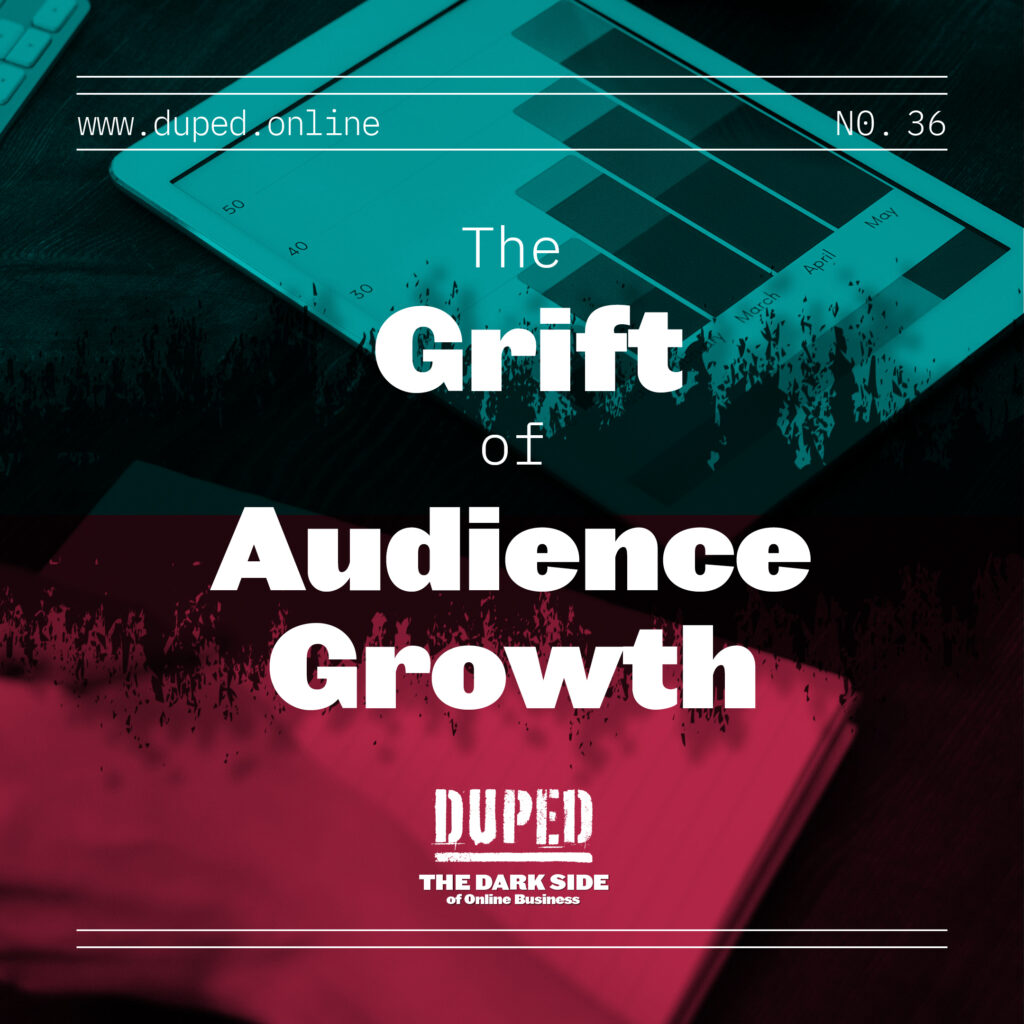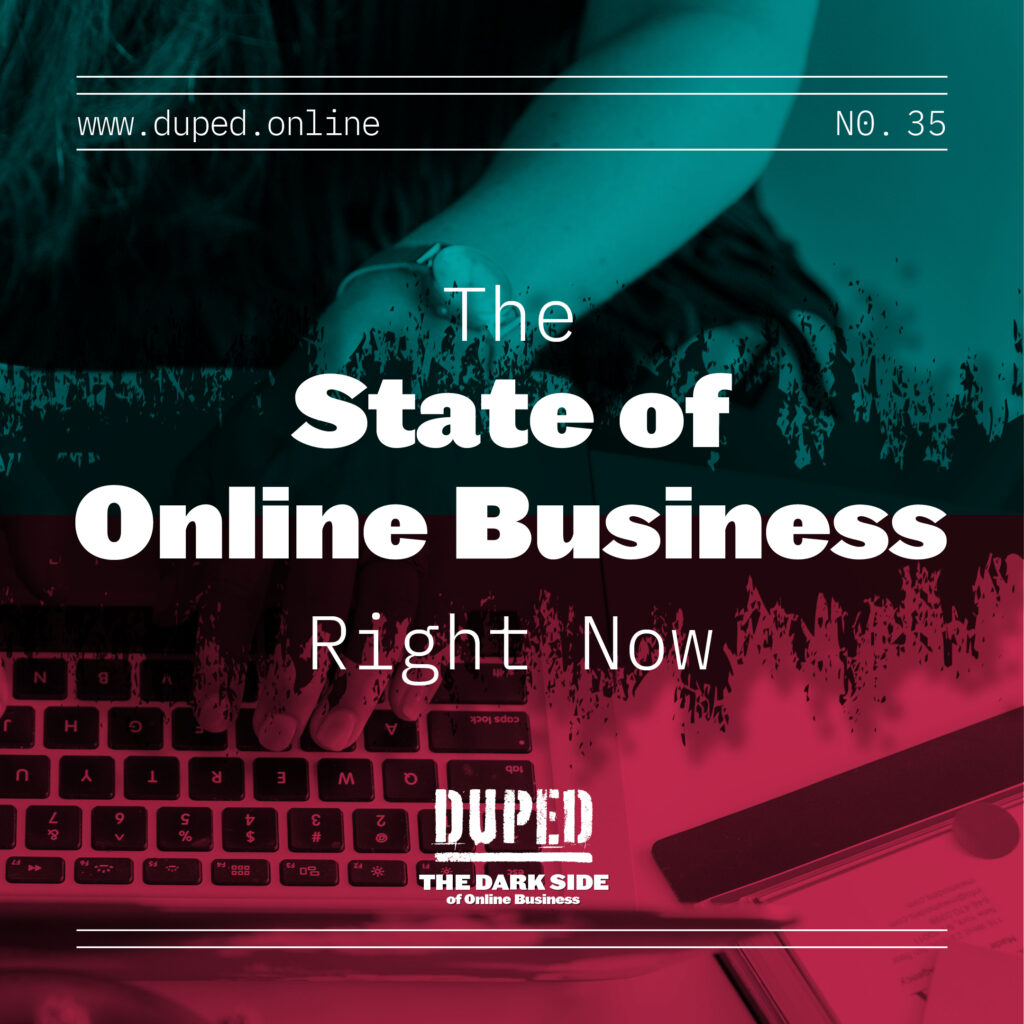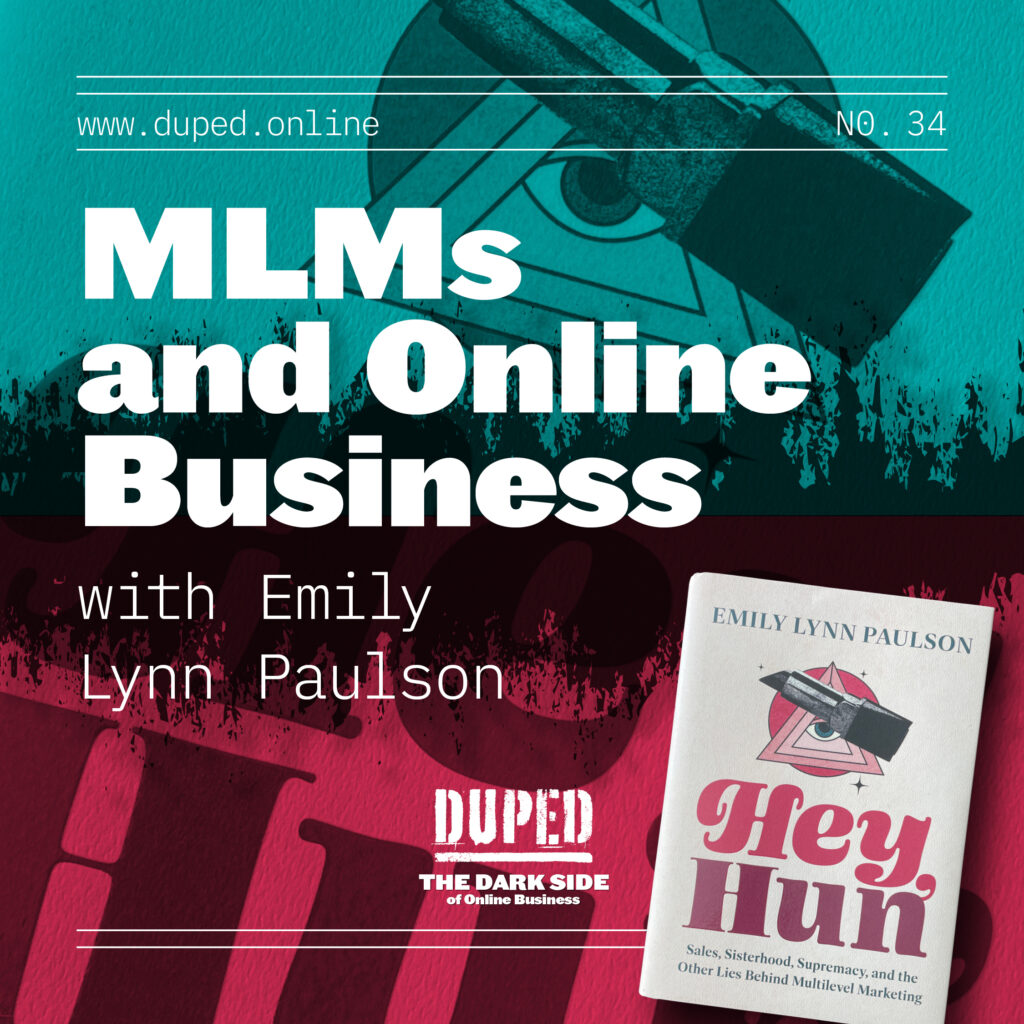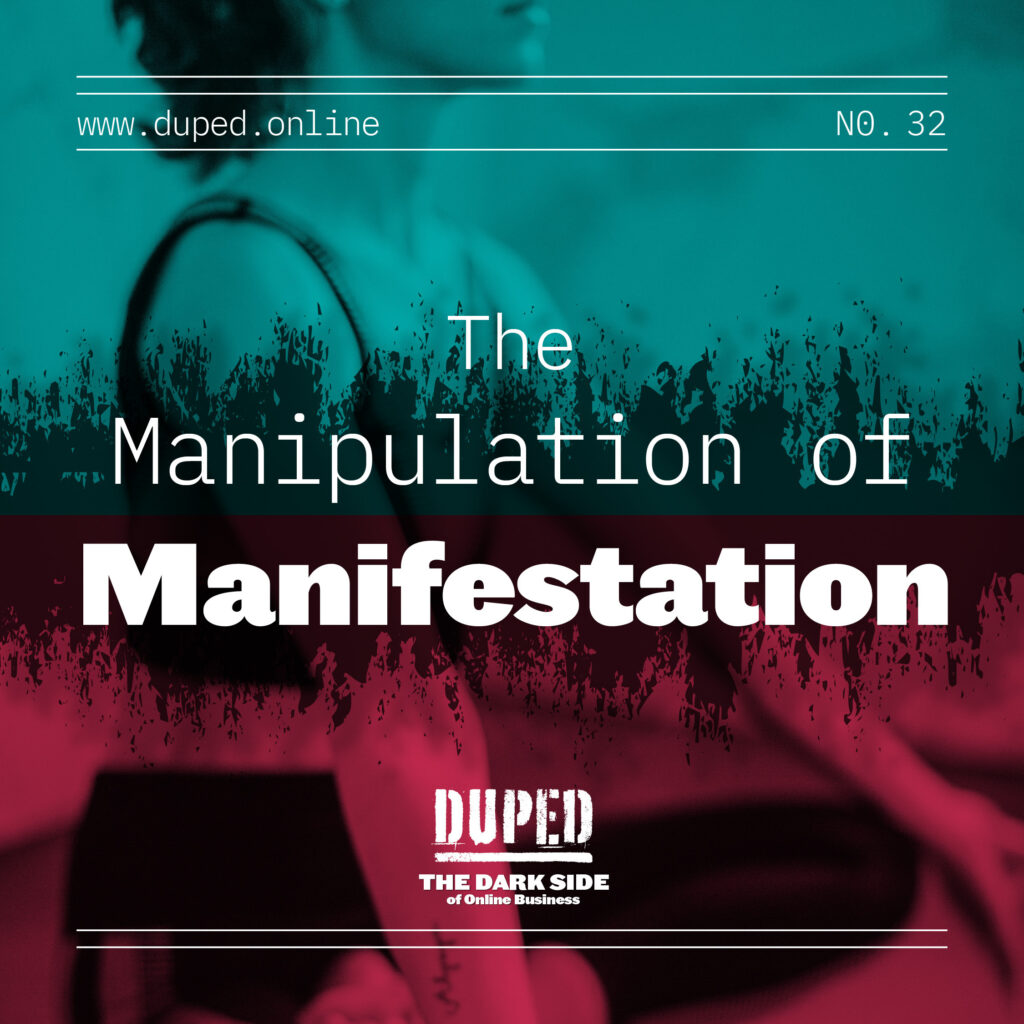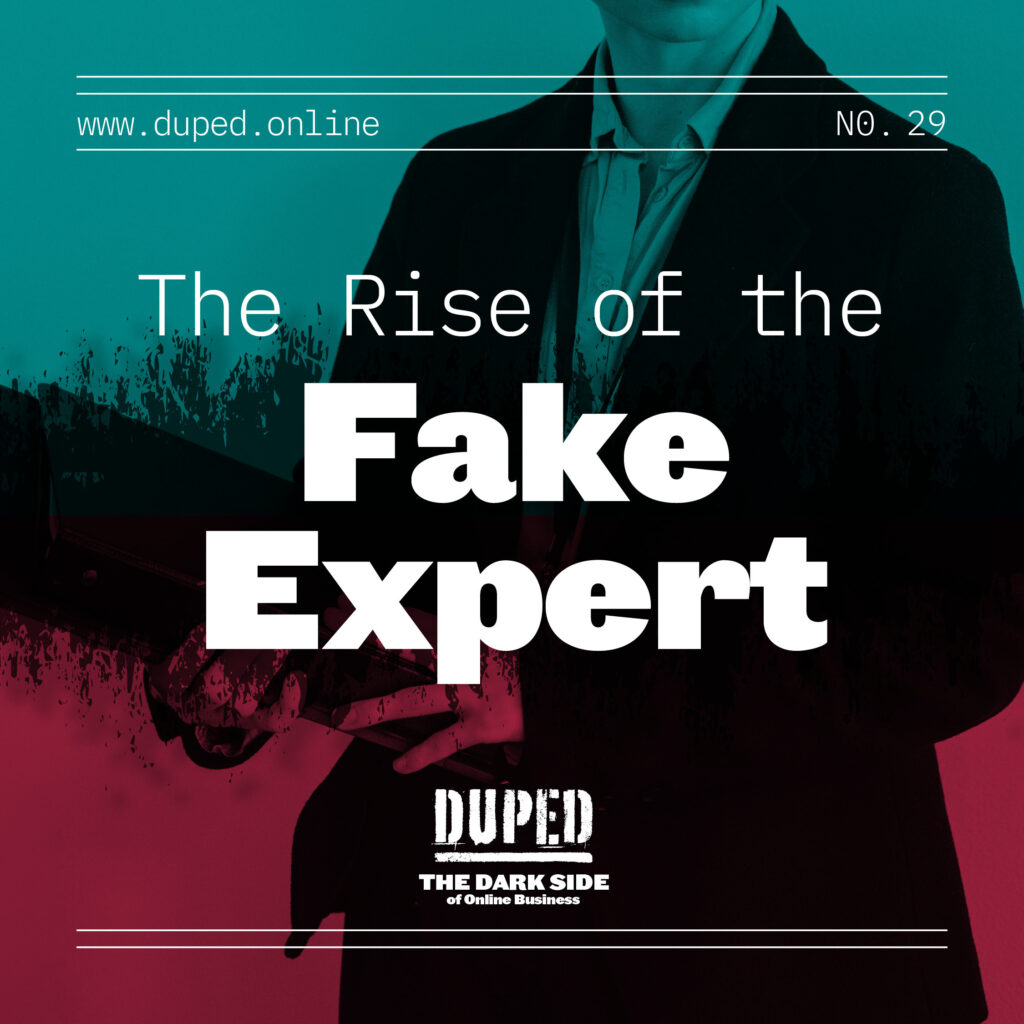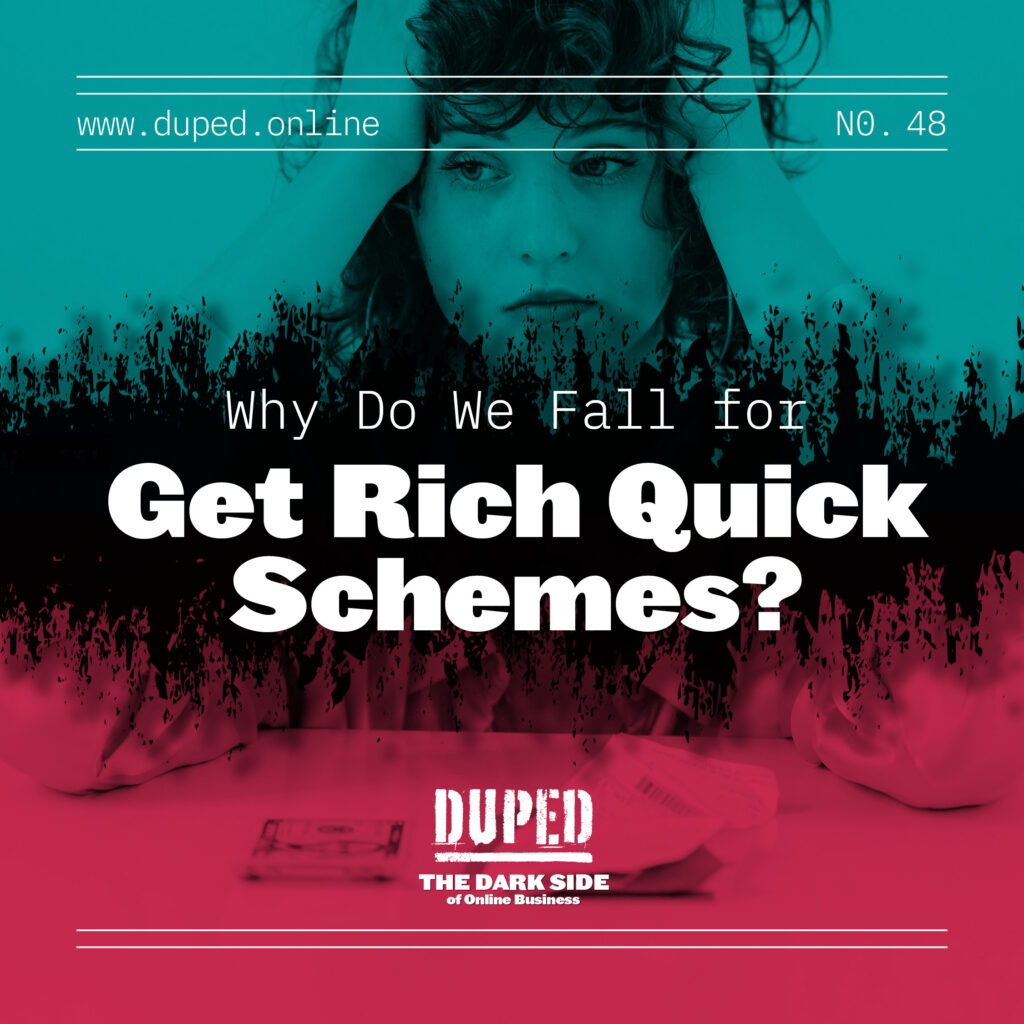
Why Do We Fall for Get Rich Quick Schemes
If you’ve been duped, the tendency is to blame yourself for falling for the grift. But what if it’s not your fault? What if larger forces are at play that primed you to believe in the dream of a 7-figure business? We’re discussing that in this episode, so let’s dive in.

Lately, we’ve been obsessed with the question, “Why do we so readily fall for the dream of easy and fast money?”
Today, the show is going to be a bit different. Instead of talking about how to prevent getting scammed, let’s talk about why were are so damn susceptible to it.
We want to dive into a brief history of get-rich-quick schemes that give context to what we see in online business right now and then dive into some working hypothesis about why we are so prone to believe in tales of 6-figure success.
Housekeeping:
- Duped is going on Summer break. We’ll be on hiatus until late August/early September.
- But it won’t be on hiatus in the Patreon! Keep up with the latest scams and grifts while supporting this podcast.
- In June, we’re doing a deep dive into Amanda Montell’s new book The Age of Magical Overthinking, which explores the cognitive biases that plague us. I’ll apply those to online business.
Get-rich-quick schemes have existed since at least the Roaring Twenties. History.com says that a boom time of economic prosperity led people to think anything was possible, and the rise of the newly wealthy led people to believe they, too, could become rich. The origin of these schemes includes the story of Charles Ponzi.
According to history.com, “The Boston-based Ponzi told investors that he’d discovered a way to make a fortune by buying Spanish mail coupons and redeeming them for U.S. stamps, to take advantage of the weakness of Spanish currency. In reality, {Nate} Hendley, author of the “Big Con” explains, what Ponzi actually did “was simply take money from new investors and give it to old investors, without actually investing in anything tangible…in other words, he merely recirculated cash.”
Recent Ponzi schemes include Sam Bankman Freed (FTX) and Bernie Madoff.
What’s been happening online with the claims of fool-proof formulas from easy money, 6-figure/7-figure dreams, and essentially money for nothing is nothing new!
5 Telltale Signs You’re Being Scammed
We found this fascinating article by professors Zeka & Alhassan in The Conversation called, Get-Rich Quick Schemes, Pyramid, and Ponzis: 5 Signs You’re Being Scammed
Here are the five signs:
- “Offer exaggerated and above-market returns within a short period of time, with the promise of little to no risk.”
- The article says that the two rules of investing are that it takes time to make money and all investments require risk
- “New members are constantly recruited to join the scheme.”
- “There is an urgency to join the scheme and no clarity on how the scheme works”
- “The scheme is not registered with or regulated by any recognized authority.”
- “They use the testimonies from existing members who’ve earned big bucks to promote the scheme.”
Even though the history is fascinating and the signs you’re being scammed are clear, it doesn’t explain why people fall for these schemes, especially when so many of us were raised with the wisdom of “If it’s too good to be true, it probably is.”
In fact, the article in The Conversation ends with the advice If it’s too good to be true, it is.
Shockingly, there’s little research into why we keep failing for these scams. Why do we believe it when someone tells us we can have a 6-figure business in less than 3-months or add 6-figures of revenue in a year? Why do we fall for the luxury lifestyle marketing?
Michelle has been embarking on a research project to crack the code. She’s still at the early stages, and from what she can tell, the answer is complex—societal and cultural forces, as well as our own cognitive biases, play a role in our need to believe in money for nothing.
The American Dream & Rugged Individualism
Rugged Individualism believes that the individual ultimately controls their economic success. You can achieve economic success if you work hard and make the right choices.
At its heart, you’re in control of attaining the American Dream.
In his video, The Myth of the Rugged Individual, Robert Reich argues that what predicts achieving the American Dream is how you started.
In it, he cites 2015 research from the Pew Foundational Trust showing that if you’re born to the top 10% of earners, you’ll earn 3x as much income as the children of the bottom 10%.
Additionally, a 2017 study found that in the 1940s – 90% of people earned more income than their parents, and today it’s less than 50%.
The American and Rugged Individualism tells us that wealth and success are possible.
So when we hear about building a 7-figure business, what happens to our critical thinking?
Americans believe that we can defy the odds, so when we hear of schemes promising to help us build a six-figure or seven-figure business, we believe we can do it.
If you’ve fallen for one of these coaches or business owners promising the dream, you were socialized into believing it was possible from birth.
It’s another reason not to feel bad that you were duped. You were primed for it.
Another way we are primed for it…
Prosperity Gospel & Manifestation
It might be weird to lump these two concepts together, but they are both based on the same BS belief.
“Wealth is your birthright.”
It doesn’t stop there; a 2017 Vox piece by Tara Burton argues that the prosperity gospel and the law of attraction share the same roots in new thought.
She quotes, “A 2006 Times poll found that 17 percent of American Christians identify explicitly with the movement, while 31 percent espouse the idea that “if you give your money to God God will bless you with more money.” 61 percent agree with the more general idea that “God wants people to be prosperous.”
As discussed in the Manipulation of Manifestation episode, “Manifestation is baked into Western economic and social systems. It reinforces the prosperity gospel and the myth of bootstrapping, where anyone can be successful if they take the right actions.
Manifestation and prosperity gospel are pretty much the same thing. However, with the prosperity gospel, you must usually tithe to your church to see wealth.
Fun fact: Michelle’s hubby’s family was scammed in the 80s out of tens of thousands of dollars in a real estate scam by a God-fearing man. He played on their religious beliefs and not only scammed her hubby’s parents but his entire family (aunts and uncles) with this schtick.
This is another way we are primed to believe in the promises of get-rich-quick schemes, which brings us to the last point.
Cognitive Biases
Michelle asked in The Expert Up Club why people think they fall for get-rich-quick schemes…and what surprised her the most was how quickly people blame themselves for these claims. They didn’t think about the societal indoctrination that primes us to believe it’s easy to make money.
But there’s one cognitive bias that we wanted to touch briefly: confirmation bias. According to the Decision Lab, this bias “describes our underlying tendency to notice, focus on, and give greater credence to evidence that fits our existing beliefs.”
If you’ve been socialized to believe in the American Dream, Rugged Individualism, Prosperity Gospel, or Manifestation, what’s your confirmation bias going to do?
Final Thoughts:
- Get-rich-quick schemes, in their various forms, have existed for 100 years; what we see in online business is just the newest iteration.
- If you were duped, realize it’s not your fault. Your society primed you to believe in the manipulative marketing that is touted in this space.
- Be aware of confirmation bias, which feels almost impossible, but you’re here listening to a podcast on why we fall for this bullshit. You’re seeking out info that disconfirms you’re bias – go you!
Links for this episode:
- The Age of Magical Overthinking
- The Shady Get-Rich Scams of the Roaring Twenties
- Who is Sam Bankman-Fried?
- Bernie Madoff: Who He Was, How His Ponzi Scheme Worked
- Get-Rich-Quick Schemes, Pyramids and Ponzis: Five Signs You’re Being Scammed
- Duped: The Luxury Life
- The Myth of the Rugged Individual
- The Prosperity Gospel, Explained: Why Joel Osteen Believes That Prayer Can Make You Rich
- Does God Want You to Be Rich?
- Duped: The Manipulation of Manifestation
- Duped: The Entrepreneurial Industrial Complex
- Why Do We Favor Our Existing Beliefs?
Join the

Patreon

for only $7/month and get a
monthly bonus episode,
behind-the-scenes content
and more.
